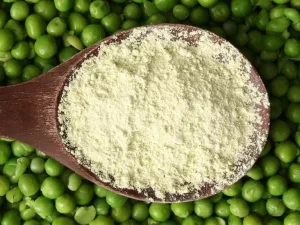Skyr is loaded with a variety of nutrients that may support your well-being.
It could contribute to stronger bones and a healthier heart, aid in losing weight, and help maintain balanced blood sugar.
Skyr is a cultured dairy product from Iceland that’s gaining popularity around the globe.
With a high protein level and an array of vitamins and minerals, skyr is widely viewed as a wholesome addition to a balanced diet.
People commonly eat it as a protein-rich breakfast, a healthier dessert option, or a sweet snack between meals.
This article explores skyr in detail, explaining what it is and why it’s considered beneficial.

What Is Skyr?
Skyr has been a traditional food in Iceland for more than a thousand years.
It resembles yogurt closely, sharing a similar flavor but usually having a slightly thicker consistency.
Some well-known brands are:
- Siggi’s
- Skyr.is
- Icelandic Provisions
- Smari
- KEA Skyr
Skyr is produced from skimmed milk, which has had its cream removed. The milk is warmed and inoculated with live bacterial cultures.
After the mixture thickens, it’s strained to remove the whey.
Skyr’s popularity has risen in recent years, and it’s now available in many supermarkets worldwide.
Summary:Skyr is an Icelandic cultured dairy product made by adding bacterial cultures to skim milk and straining out the whey.
Skyr Is Rich in Important Nutrients
Skyr offers an impressive nutritional profile.
It’s low in calories, fat, and carbohydrates, yet high in protein as well as essential vitamins and minerals.
Although nutrient values differ by brand, a 6-ounce (170-gram) portion of plain skyr typically provides the following (1, 2):
- Calories: 110
- Protein: 19 grams
- Carbs: 7 grams
- Fat: 0 grams
- Phosphorus: 25.5% of the RDI
- Calcium: 20% of the RDI
- Riboflavin: 19% of the RDI
- Vitamin B-12: 17% of the RDI
- Potassium: 5% of the RDI
Skyr is naturally fat-free, although some varieties have cream added during processing, which raises the fat content.
It contains more protein than many other dairy options, offering around 11 grams of protein per 3.6 ounces (100 grams) (1).
For perspective, the same amount of Greek yogurt delivers roughly 7 grams of protein, while whole milk has about 3.2 grams (, 5).
Summary:Skyr is low in calories but high in protein, and it contains several important vitamins and minerals.
Its High Protein Content Keeps You Full
A major advantage of skyr is its substantial protein content.
Making skyr requires three to four times more milk than making conventional yogurt, producing a more concentrated, protein-rich product.
Research indicates that dairy-derived protein can help regulate blood sugar, support bone health, and preserve muscle during weight loss.
Protein also helps with weight management because it increases feelings of fullness and reduces hunger. Indeed, consuming high-protein dairy foods like yogurt has been linked to preventing weight gain and obesity.
One study evaluated how high-protein snacks such as yogurt affected appetite compared with less healthy snacks like chocolate and crackers.
Eating yogurt not only reduced appetite but also resulted in consuming about 100 fewer calories later in the day.
Another trial compared low-, moderate-, and high-protein yogurts on hunger and appetite, finding that high-protein yogurt decreased hunger, increased satiety, and delayed the next eating episode.
There’s also evidence that protein may boost diet-induced thermogenesis, which raises metabolism and helps burn more calories after meals.
Summary:Skyr’s high protein content may aid weight loss by improving satiety and lowering appetite.
It Can Protect Against Osteoporosis
Skyr is a good source of calcium, an essential mineral for health.
About 99% of the calcium in the body is stored in bones and teeth.
While collagen provides the structural framework of bones, calcium and phosphate combine to give bones their strength and density.
In children and adolescents, research shows that calcium intake is linked to increases in bone mineral density and growth.
As people age, bone density declines, which can lead to porous bones and osteoporosis.
Studies indicate that boosting calcium intake can help slow bone loss.
For example, a three-year study in women found that higher dairy-based calcium intake helped maintain bone density.
Another study in older women showed that long-term calcium supplementation reversed age-related bone loss.
Calcium is available in various foods, and one serving of skyr supplies about 20% of the daily recommended amount.
Summary:Skyr is rich in calcium, which can help guard against bone loss and osteoporosis.
It May Promote Heart Health
Heart disease is the top cause of death globally, responsible for nearly 31% of all deaths.
Luckily, research suggests that dairy items like skyr may be associated with a lower risk of heart disease.
This benefit likely stems from dairy’s content of minerals such as calcium, potassium, and magnesium, all important for cardiovascular health.
A 24-year study in Japan found that each 3.5-ounce (100-gram) increase in dairy intake was linked to a 14% reduction in deaths from heart disease.
Another study indicated that dairy consumption can lower blood pressure, showing that three daily servings of dairy significantly reduced systolic blood pressure in men with hypertension.
Summary:Dairy foods like skyr have been linked to lower blood pressure and reduced heart disease risk.
It Supports Blood Sugar Control
Because skyr is high in protein and low in carbohydrates, it may aid in managing blood sugar.
When you eat carbohydrates, your body converts them to glucose. Insulin then transports glucose into cells to be used for energy.
Eating excessive carbohydrates can impair this process, contributing to elevated blood glucose levels.
Research shows that consuming protein slows carbohydrate absorption, improving blood sugar control and lowering blood sugar spikes.
One 16-week trial compared high-protein versus normal-protein diets and found that replacing carbs with protein significantly improved blood sugar regulation.
Summary:Skyr’s combination of high protein and low carbs can help improve blood sugar control.
Skyr May Not Be for Everyone
Skyr isn’t suitable for everyone.
Because it’s made from milk, individuals allergic to casein or whey — the main milk proteins — should avoid skyr.
For such people, skyr and other dairy products can provoke allergic reactions ranging from bloating and diarrhea to anaphylaxis.
If you’re lactose intolerant, whether you can tolerate skyr may require some experimentation.
Lactose is the sugar found in milk and is digested by the enzyme lactase.
People with lactose intolerance lack sufficient lactase, which can cause stomach pain and other digestive symptoms after eating lactose-containing foods.
Thankfully, the straining process used to make skyr removes around 90% of its lactose, so many people with lactose intolerance can handle moderate amounts.
Still, it’s wise to try a small portion first to ensure you don’t experience adverse effects.
Summary:Skyr contains milk and may cause problems for those with lactose intolerance or milk allergies.
How to Enjoy Skyr
Traditional skyr is served mixed with a little milk and sugar, although eating it plain is the healthier choice.
Flavored skyr varieties are common and are typically sweetened with sugar or artificial sweeteners.
It’s often paired with fruit or jam to add sweetness and make a dessert-like treat.
Skyr is also used in numerous recipes, from flatbreads and frittatas to puddings and more.
Some other ways to enjoy skyr include:
Summary:Skyr is traditionally mixed with milk and sugar, but it can be enjoyed in many different ways.
The Bottom Line
Skyr is abundant in nutrients that can be advantageous for your health.
It may support bone and heart health, assist with weight loss, help regulate blood sugar, and deliver substantial protein with minimal carbohydrates and fat.
Overall, skyr is a nutritious option that can be a beneficial addition to most diets.






















Leave a Reply
You must be logged in to post a comment.